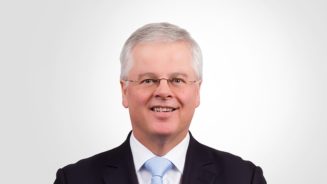Defaulting on around $100bn (£69.4bn, €89.1bn) in debt in 2001, the country was locked out of the international markets by a group of US hedge funds – nicknamed the ‘vultures’ by the Argentinean press – that refused to agree to a 70% write-off accepted by Argentina’s other creditors.
Too much, too quickly
Since taking power in December 2015, surprise election winner, president Mauricio Macri has made significant but contentious headway.
“In the early weeks of the new government there seemed no doubt that it was making Argentina much more investor friendly,” says Colin Maltby, Buenos Aires-based director of legal and advisory firm Berkeley LatAm.
But a lot of Argentineans are not happy about paying off the ‘vultures’, Maltby explains, adding that while the measures undertaken by Macri make long term economic sense, “he’s doing it too quickly, without consulting Congress, and to the significant detriment of the majority of the population”.
With electricity prices up 400% and expected to climb, Maltby sees Argentina heading for a deep recession.
Cautious stance
“As equity investors, we maintain our cautious stance towards Argentina.” says Ivo Luiten, senior investment manager, NN Investment Partners, which is opting to remain on the side lines for now.
“The country is back on the radar of international rating agencies. Renewed access to international credit markets is an important step to make Macri’s reform agenda work, but it does not change our main concerns, which mostly relate to the fragile domestic situation.
“The main issue of rampant inflation hasn’t changed and will stay a problem for the rest of the year, and arguably 2017. The Argentina stock market also remains expensive,” Luiten says, adding that at this point Argentina is probably more attractive for bond investors looking to play the carry trade, than for equity investors.
Automotive upgrade
Argentina-born Guillermo Besaccia, emerging markets debt team fund manager for Schroders, is more optimistic about the country’s prospects.
“Argentina, in recent years, has been like an old small car running at very high speed in that it was going too fast and could blow up at any time. What the new administration did is lower the speed of the car but reform it at the same time so it becomes a more medium sized car.
“At the end of the day you will have a better car but you will have to go at a lower speed. The more reforms you do, the better the car will be, and the better speed you will be able to get.
“The dynamic of Argentina is obviously tied to whatever happens to the world. So if there is anything that effects the world in general then that will also feed into Argentina, as it would do in any emerging market.
“If we keep having improvements in emerging markets – because we are seeing improvements in commodity prices as well – then that allows that dynamic to continue working forward,” Besaccia adds.
LatAm sea change
Hermes Investment Management’s head of emerging markets, Gary Greenberg, is similarly positive about the direction the country has taken and its potential impact on Latin America.
“We think that this is the beginning for Argentina, rather than the end, and may represent a little bit of a sea change in the leftward movement of South American politics. That would be positive given that the far-left policies of Venezuela, Bolivia and, to some extent, Brazil seem to be failing.
“So we may have the beginning of a change in direction, which for markets would be positive,” Greenberg said.




